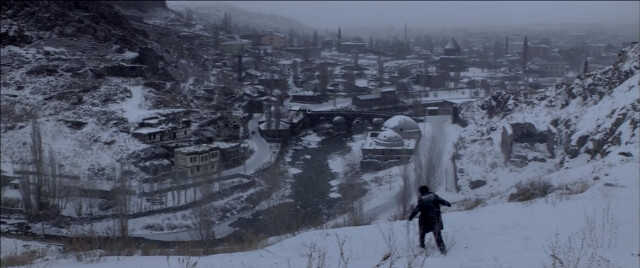

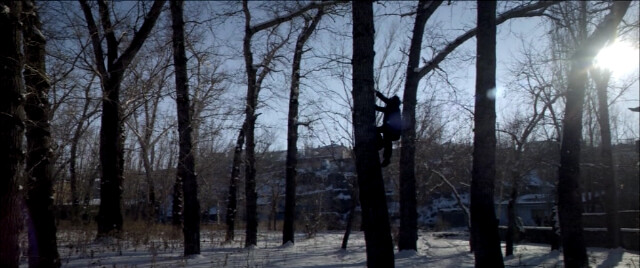
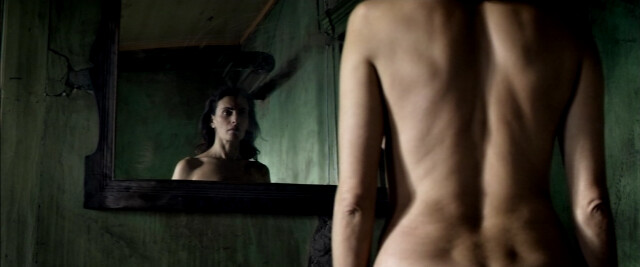
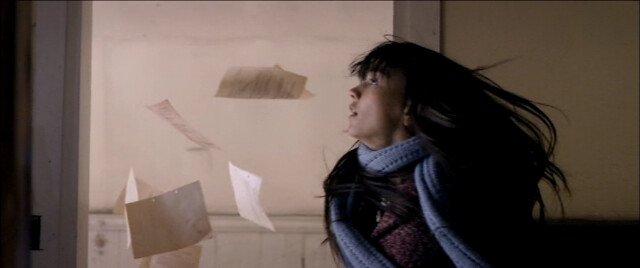
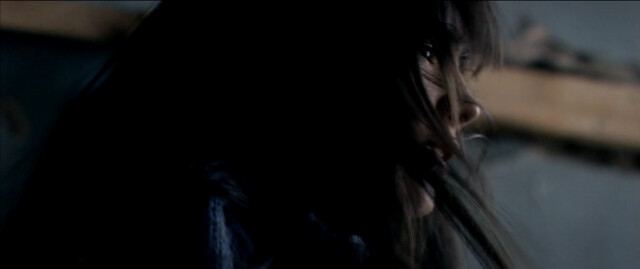
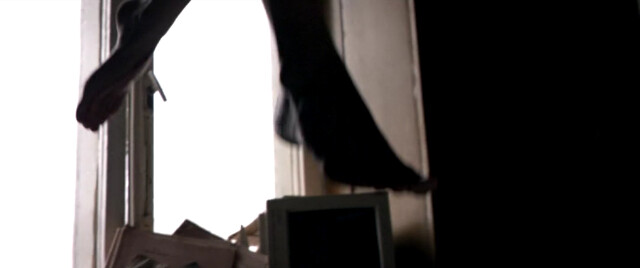
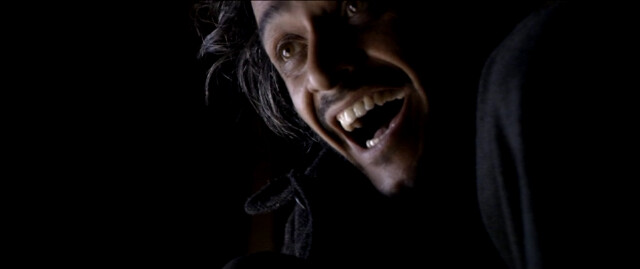
A bug eyed stranger (Sermet Yesil) comes into snowy border town in northeast Turkey. Upon arrival, he saves and miraculously revives a drowned boy from the river. The boy's father, a local butcher, grateful, tells the stranger that he is welcome and can stay in an abandoned city hall building. But it's the stranger's eccentricity that attracts the locals attentions- it's his philosophical talk in a high pitched voice, only eating lumps of sugar at a tea house for sustenance, having no concept in labor or money, and is later revealed, has abilities to cure and heal people and even defy gravity. He impacts some of the locals' lives for the better, at first. After healing an old man's bad lung (he has to pick his patients up from behind and shake them like a rag doll), there's a line of sick and invalid people gathering at his door which he avoids.
The story of two factions in the village, ones who embraces opening the borders and by trading with the others that will bring the wealth, the other who blames the loss of cultural, traditional ways and recent social ills (mostly robbery committed by the stranger) on the foreigners, resonates the world we are living in. As the miracles fade and turn into tragedies, people start to resent the stranger they first saw as a savior.
This allegorical tale packs a lot of themes and stories in to a 2 hour running time. It reminds me of Werkmeister Harmonies and Tarkovsky's work. But unlike those clinically astute aesthetics of Tarkovsky or Tarr, Erdem's Kosmos is an energetically charged film from beginning to end. The stranger who calls himself Kosmos is always moving about, and the camera, through tracking shot and handheld, constantly move through snowy landscape and chaotic interiors: It being a border town in an unending conflict with neighbors, there are constant low booms of cannons heard from near distance. A satellite falls from the sky. There are also noises of cows from the slaughterhouse, birds, dogs and music- the film is cacophony of sounds and motion all of the time.
Neptün (Türkü Türan), daughter of the butcher, connects with Kosmos. There courtship is that of feral animals - they communicate by howling and running around. Perhaps she is the only one who understands when he says there is no difference between human and animals.
Kosmos is an unwieldy, messy, sprawling work. There are many moments of brilliance and striking visuals. But all that chaos is what Erdem is intending to show. But Kosmos is definitely not a moral lesson, there is no ultimatum or strong message. That the world is indeed chaotic, indecipherable, unknowable and mysterious. The director leaves it at that. Perhaps not narratively satisfying, but Kosmos is full of beauty and wonder.